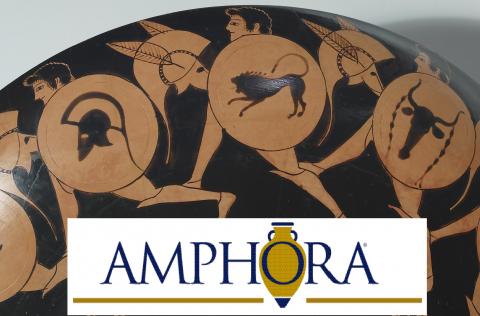SCS Blog Author Page
Posts by Ellen Bauerle
Eurydice by Sarah Ruhl: The Power of Pretense
The story is familiar. Musician marries the love of his life; on their wedding day, she dies. He grieves until he wills his way into the Underworld and is allowed to retrieve her on one condition, which he violates. Thus, even the theme is the same: the fallibility of the human condition and the inability of art to triumph over the persistence of suffering and the finality of death. Nor is Eurydice a strident feminist with a point to prove, after centuries of silent existence as nothing more than a catalyst for the erotic narrative that is the myth of Orpheus and Eurydice. For contemporary American playwright Sarah Ruhl, Eurydice is foremost a daughter who learns the hard way that all relationships are constructed of words that cannot always withstand the insistent tensions and demands of parents and spouses. Since language is so deficient, Ruhl deploys light, space, distance, and depth to hone the banal into razor-sharp instruments capable of exposing emotional Read more … |
|
Troilus and Cressida and Tacitus
by Herbert W. Benario This play is one of Shakespeare’s oddest. The theme focuses upon the Trojan War, with constant interplay among the great figures of the Greeks and Trojans, in the seventh year of the war. The cause of the war, the Trojan prince Paris stealing the beauteous wife of Shakespeare will pronounce harsh judgments upon the heroine of the play. Her behavior and character will be sharply contrasted with one of Tacitus’ prime female figures in the struggle between Romans and Germans. Both suffer the indignity of being handed over to the enemy by their fathers. But their response and behavior are vastly different. The focus of the play is likewise upon a young man and woman, Troilus, a son of King Priam of Troy, and Cressida, hitherto unknown in the ancient legend of Troy. She plays a relatively small role in the drama; indeed, almost everything about her is quizzical. She is traded by her father, Calchas, a seer who went over to the Greeks Read more … |
|

|
Learn to Spend the Big Money: Medievalists Mary Carruthers, Irina Dumitrescu, and Barbara Rosenwein on Humanities Outreach
by Ellen Bauerle This spring I was fortunate to hear an interesting panel discussion—stand-up-and-take-notice interesting—at the Medieval Academy of America’s annual meeting, hosted by Notre Dame University. The panelists’ observations seemed to me relevant to the SCS both as demonstrating additional kinds of outreach but more importantly as discussing the peculiar period higher education now finds itself in, and what might be done about that at every level, from junior scholar to dean. Officially the panelists spoke in the context of medieval studies, but they mentioned classical studies at different points, and the vast majority of their comments would be applicable to nearly any department in the humanities, especially those involved with “old stuff” or those commonly regarded by the public as recondite. In short, if your discipline has a saying about it on the model of “It’s all [your day job] to me,” you’ll want to listen to the presentations by these three Read more … |
Games and Thrones
by David Potter On May 2, 2015, two men boxed for thirty-six minutes, and each made an enormous amount of money, splitting a record purse of $300 million. Fans may not have seen the greatest fight of all time, or anything close to it, but they did get to boo the winner, Floyd Mayweather, when he strutted around the ring after he was awarded the unanimous decision. The political ambitions of the loser, Manny Pacquiao, do not seem to have been damaged by his defeat. There are already rumors of a rematch. Tiberius Caesar would have been appalled. On May 27, 2015, a series of indictments was issued against leaders of the Fédération Internationale de Football Association (FIFA) for a wide range of corrupt activities in connection with the world’s most widely viewed sporting event, the World Cup. The modern notion that major sports organizations should claim to be self-policing and effectively free of governmental oversight—a privilege also asserted by, for Read more … |
|
Using Low-Cost Hardware for 3D Scanning at Kenchreai, Greece
As the tools and methods for creating 3D models of sites and objects become less expensive, archaeologists are increasingly putting them to good use in the field. This article focuses on my collaborative work to scan objects found at the site of Kenchreai in Greece and now stored nearby in the Isthmia Museum. It does cover practical issues and one goal of writing this piece is to encourage others to explore the creation of 3D content. Accordingly, I stress that 3D tools are becoming easier to use, not just less expensive. And it will be as important to think about what to do with these models after they are made. Permanent access to 3D models is a goal and initial steps towards that are described below. Likewise, rich linking of information about scanned objects to descriptions of their original archaeological findspot will further encourage contextualized studies of Greek and Roman material culture. As 3D content becomes available on the internet, new approaches both to Read more … |
|

|
Amphora: Ancient Narratives and Modern War Stories: Reading Homer with Combat Veterans
For the past seven years, small groups of combat veterans in the Upper Valley of New Hampshire and Vermont have been making Homer their own. This article details the particular value of these small book groups for the veteran, for the community, and for me as the academic facilitator. The proposal for the book groups originated from the premise that literature is able to provide useful insight into life experience and, more specifically, that Homer’s Iliad and Odyssey provide valuable insight—2800 years old—into the problems of soldiers who individually and collectively experienced deep internal conflicts while deployed (Iliad) and who needed somehow to get home (Odyssey). Homer provides a salutary distancing and deflection that, I believe, allows the problems of homecoming to emerge more clearly as a historical problem of the human condition across cultures and political or social organizations: the Read more … |
A New Incarnation of Latin in China, by Yongyi Li
On a wintry day in 1996, I was thumbing through catalogues in a deserted corner of the library of Beijing Normal University when my attention was suddenly seized by some titles in a language strangely familiar. I could easily decipher them because of their resemblance to English words, and I knew the names of the authors as I had read them in translations. Latin! My instinct told me. I relayed this discovery to my teacher of Shakespearean plays, a BA in Classics who had just graduated from Oxford. The next morning saw us standing in front of a counter in the most secluded part of the library, after spiraling flights of gloomy stairs. A long silence ensued before the books were fetched from a bank ten stories above and presented before us. In a thrilled voice, my teacher began to read a Latin passage aloud to me. We had been the first in decades, the librarian told us, to borrow these books, and there were many more such books simply locked in some rooms, as no one had the expertise Read more … |
|
The Kids Are Alright, or, Nobody Killed the Liberal Arts: Michael Broder and Daniel Tompkins Discuss Joseph Epstein
In September 2012, Joseph Epstein published an essay in the Weekly Standard called Who Killed the Liberal Arts? The piece provoked lively response on the Classics List and at least one rapid, articulate response, by Katie Billotte in Salon. Epstein’s argument is of more than passing concern to academics, scholars, students, and members of the general public interested in current debates about the value and vitality of the humanities and humanistic education, not only because he claims that the so-called liberal arts are dead, but also because he accuses humanists themselves of the murder. Moreover, it is important not to let his ideas go unchallenged, both because they are so often flawed, and also because they are part of a broader pattern of similar laments that collectively seek to Read more … |
|
Labors and Lesson Plans: Educating Young Hercules in Two 1990s Children’s Television Programs, by Angeline Chiu
“Zero to Hero, in no time flat … Zero to Hero, just like that!” The Muses’ song from the Disney film Hercules could apply equally well to the sudden, spectacular rise of Hercules in pop entertainment of the late 1990s. Those proved lively years for the hero in American film and TV, spearheaded by the 1997 Disney animated movie and by television’s Hercules: The Legendary Journeys, starring Kevin Sorbo (1995-99). The two quickly spun off more TV series: Disney’s Hercules: The Animated Series (1998-99, 65 episodes of 30 minutes each) and Young Hercules (1998-99, 50 episodes also of 30 minutes each) starring Ryan Gosling.* Both spinoffs reimagined the mythological hero specifically for younger viewers and gave him unprecedented exposure in children’s weekday TV.† In terms of the target audience, grade school and middle school years are very impressionable times for encounters with cultural influences. Every spring I teach a large myth course, Read more … |
|
Where Do We Come From? What Are We? Where Are We Going? by Ellen Bauerle
In this issue of Amphora we are fortunate to have our Executive Director Adam Blistein’s account of his introduction to classics through a particularly gifted high school teacher and coach, Alfred Morro, and Adam’s comments on what that experience has meant to him. It was serendipity that Adam proposed his article to your Amphora staff for this issue, but his essay also fits nicely with another topic that has been under discussion among the APA’s Outreach division: thinking about our origins, about our path to classical studies, and what that tells us. As I was getting to know social media a while back, and mindful of the colorful situations that people sometimes get themselves into with unfamiliar technology, I was looking for some safe, mild topics of discussion and posting. I got to talking with the smallish group of social media friends I had at the time about how they happened to reach the positions they held as adults—most but not all were college or Read more … |
